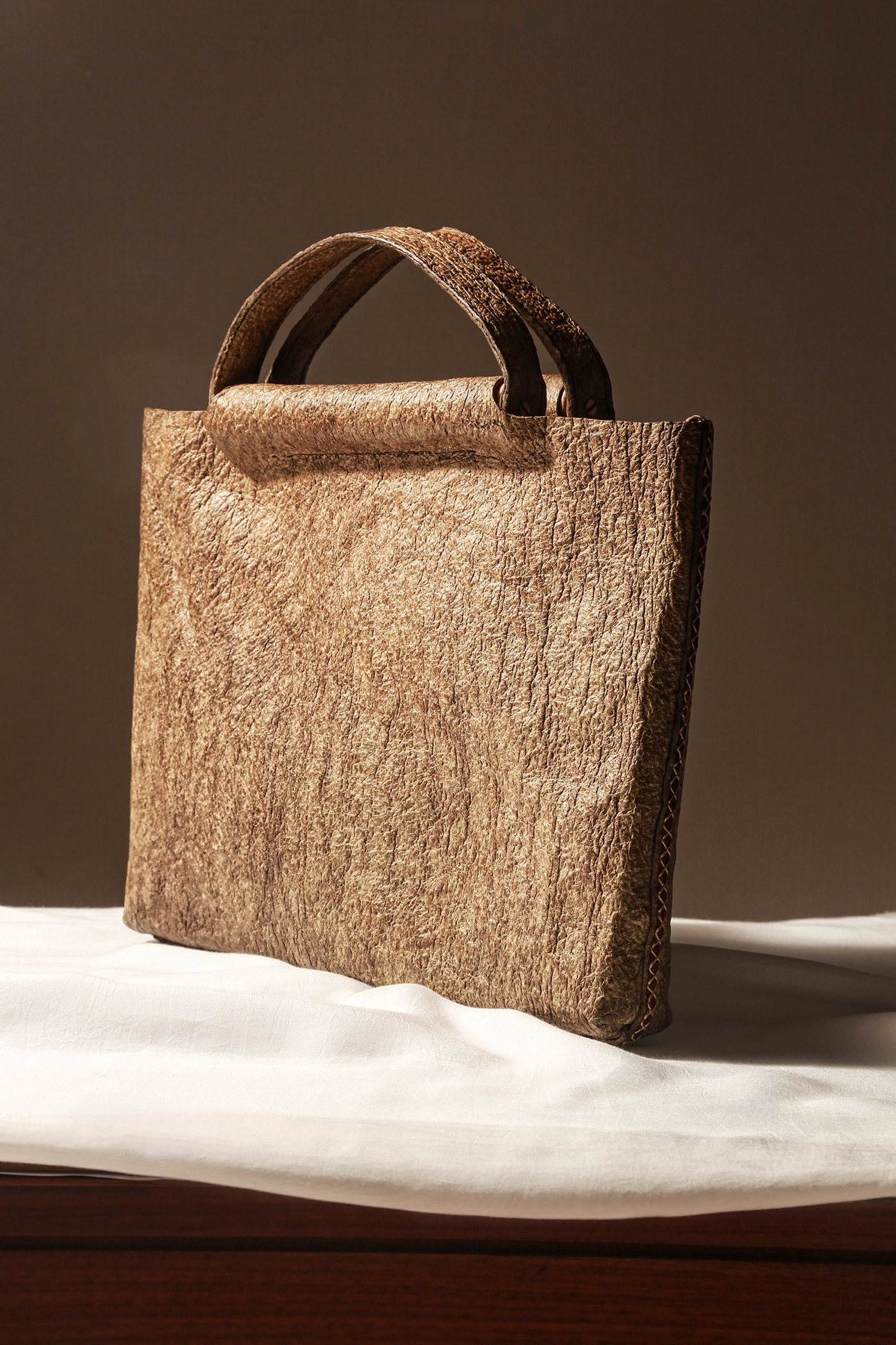A Kerala-Based Design Studio Is Using ‘Malai’ To Create Fashion Accessories
The newly developed biocomposite material is water-resistant and reuses the water from mature husked coconuts produced during the flesh harvesting process…

Founded by Zuzana Gombosova and Susmith C. Suseelan from Slovakia and India respectively, Malai Biomaterials Design is a Kerala-based research, development and design studio. It has come up with an eponymous, newly developed biocomposite material that is water-resistant and used to produce fashion accessories, stationery, furnishings and packaging. “Malai” refers directly to the creamy white flesh of coconuts. Working with the local community, the brand reuses the water from mature, husked coconuts (agricultural waste produced by the coconut industry during the flesh harvesting process) to sustain cellulose-producing bacterial cultures which ferment into a gelatinous layer. This is in turn collected and refined until it develops into the finished material — Malai.
“We came up with Malai after several months of intense experimentation. We have no synthetic colour variants of the product — its colour comes organically from natural fibres such as banana stem, sisal and hemp, which range from off-white to dark beige. Other shades are achieved using natural dyes like indigo, rose madder, cutch and so on. The biggest challenge was to find a sustainable ecosystem that facilitated the idea of material exploration in India since most of the support systems here are aimed at helping tech start-ups. Few people realise how difficult it is to make an environmentally-friendly product that is commercially viable without adding anything oil-based to it. Another obstacle is to bring in both social and economic sustainability through Malai. This is a matter of scale, not in a conventional vertical sense, but in a more inclusive, horizontal manner by uplifting the communities that work with us. Malai is still evolving but, eventually, we want to completely replace animal leather and its non-biodegradable alternatives,” says Suseelan.